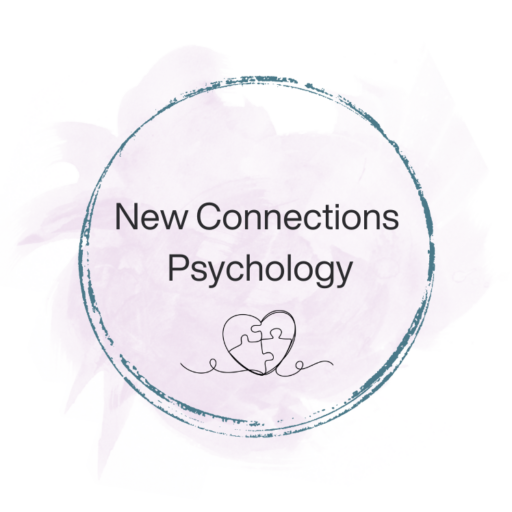Introduction
In today’s fast-paced world, the prevalence of mental health issues is on the rise. Many individuals, irrespective of age, gender, or background, find themselves grappling with various forms of anxiety, stress, and depression. Traditional forms of therapy and medication have proven effective for many, but there is a growing recognition of the therapeutic benefits of alternative approaches such as art and music therapy. In this blog post, we will explore the profound impact art and music therapy can have on mental health, delving into how these creative outlets can help individuals manage their mental health issues and lead more fulfilling lives.
Art Therapy: Painting the Path to Healing
Art therapy is a form of psychotherapy that utilizes the creative process of making art to improve a person’s physical, mental, and emotional well-being. Through painting, drawing, sculpting, and other artistic endeavours, individuals can express their thoughts and emotions in a non-verbal manner, providing an outlet for the complexities of their inner worlds.
- Emotional Expression: One of the key benefits of art therapy is its ability to facilitate emotional expression. Many individuals find it challenging to put their feelings into words. Through art, they can convey their emotions visually, allowing them to process and understand their feelings better.
- Stress Reduction: Engaging in art activities can promote relaxation and reduce stress levels. Focusing on the creative process distracts the mind from worries and anxieties, leading to a calmer state of being. The repetitive motions involved in artmaking can be meditative, promoting mindfulness and a sense of inner peace.
- Self-Exploration and Self-Discovery: Art therapy encourages individuals to explore their inner selves, promoting self-discovery and self-awareness. Through the creation of art, people can gain insights into their thoughts, beliefs, and desires, fostering a deeper understanding of themselves and their mental health challenges.
- Boosting Self-Esteem: Accomplishing creative tasks and witnessing the tangible results of one’s efforts can significantly boost self-esteem and confidence. For individuals struggling with self-doubt, engaging in art therapy can provide a sense of achievement and validation, enhancing their overall self-worth.
Music Therapy: Harmonizing the Mind and Soul
Music therapy, like art therapy, is a creative therapeutic approach that utilizes music to address various emotional, cognitive, and social issues in individuals. Whether through listening, composing, or performing music, this form of therapy harnesses the power of sound and rhythm to promote healing and well-being.
- Emotional Release: Music can evoke deep emotions and memories. In music therapy, individuals can express their feelings through playing instruments, singing, or even listening to specific pieces of music. This emotional release can be cathartic, helping individuals process and cope with difficult emotions.
- Enhancing Emotional Regulation: Music therapy can assist individuals in regulating their emotions. By engaging with music, individuals can learn to identify and manage their feelings, leading to improved emotional regulation skills. This newfound ability can be particularly helpful for individuals with mood disorders or impulse control issues.
- Improving Communication Skills: For individuals who find it challenging to express themselves verbally, music therapy offers an alternative means of communication. Through musical expression, individuals can convey their thoughts and emotions, enhancing their communication skills and building connections with others.
- Strengthening Cognitive Abilities: Engaging with music can stimulate various areas of the brain, improving cognitive functions such as memory, attention, and problem-solving skills. This is particularly beneficial for individuals dealing with cognitive impairments due to mental health disorders or neurological conditions.
Seeking Support: The Intersection of Counselling, Art, and Music Therapy
While art and music therapy undoubtedly offer profound benefits for mental health, it’s essential to acknowledge the pivotal role of counselling in the journey towards healing. Counselling provides a safe space for individuals to explore their thoughts, emotions, and experiences with the guidance of trained professionals. The therapeutic relationship formed in counselling can empower individuals to delve deeper into their creative expressions, enhancing the effectiveness of art and music therapy. Counsellors often integrate these creative modalities into their sessions, recognizing the therapeutic potential they hold. In the context of our discussion, counselling serves as the bridge between the intricacies of one’s inner world and the expressive outlets of art and music therapy. Through counselling, individuals can gain valuable insights, develop coping strategies, and build resilience, which, when combined with the transformative power of artistic expression, creates a comprehensive and holistic approach to mental health care.
When individuals engage in both counselling and art or music therapy, they embark on a multidimensional healing journey. Counselling provides the necessary guidance and understanding, while art and music therapy offer avenues for creative exploration and emotional release. Together, these therapeutic approaches create a synergistic effect, fostering a deeper understanding of one’s mental health challenges and facilitating profound healing. It’s crucial for individuals facing mental health issues to recognize the value of seeking help through counselling, embracing the support of trained professionals who can integrate the benefits of creative therapies into their overall mental health care plan.
Conclusion
Art and music therapy offer unique and powerful avenues for individuals to explore and address their mental health challenges. By providing creative outlets for emotional expression, stress reduction, self-exploration, and communication, these therapies can significantly contribute to the overall well-being of individuals struggling with mental health issues.
As society continues to recognize the importance of holistic approaches to mental health, the integration of art and music therapy into mainstream therapeutic practices is becoming more widespread. Embracing these creative therapies not only enriches the lives of individuals facing mental health issues but also highlights the transformative potential of artistic expression in the realm of mental health care. As we move forward, it is crucial to continue exploring and promoting these valuable therapies, ensuring that individuals have access to diverse and effective tools to manage their mental health and lead fulfilling lives.

